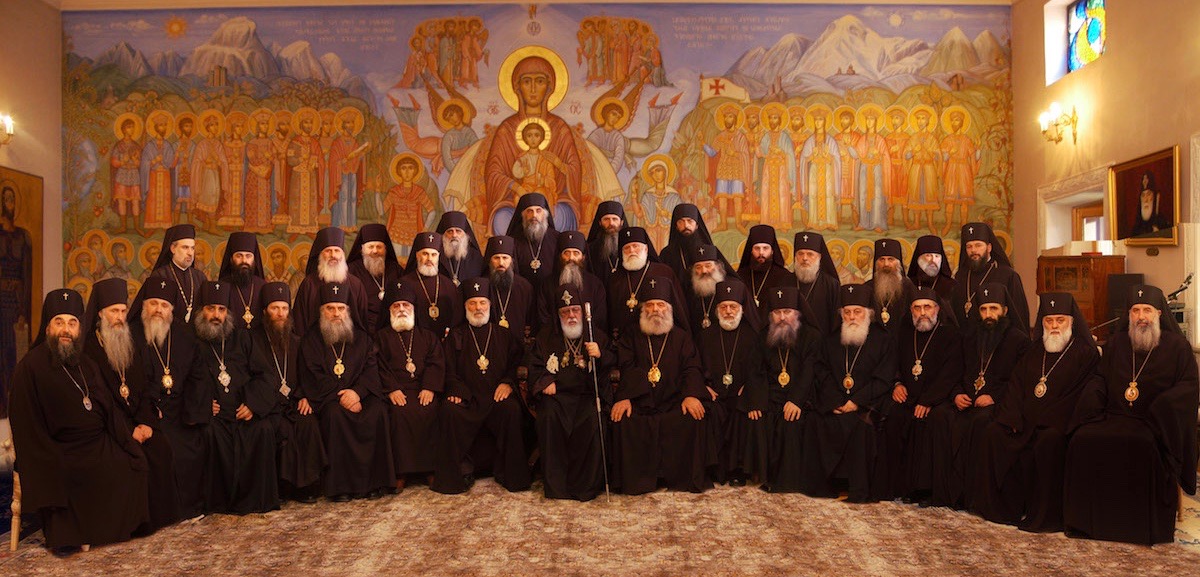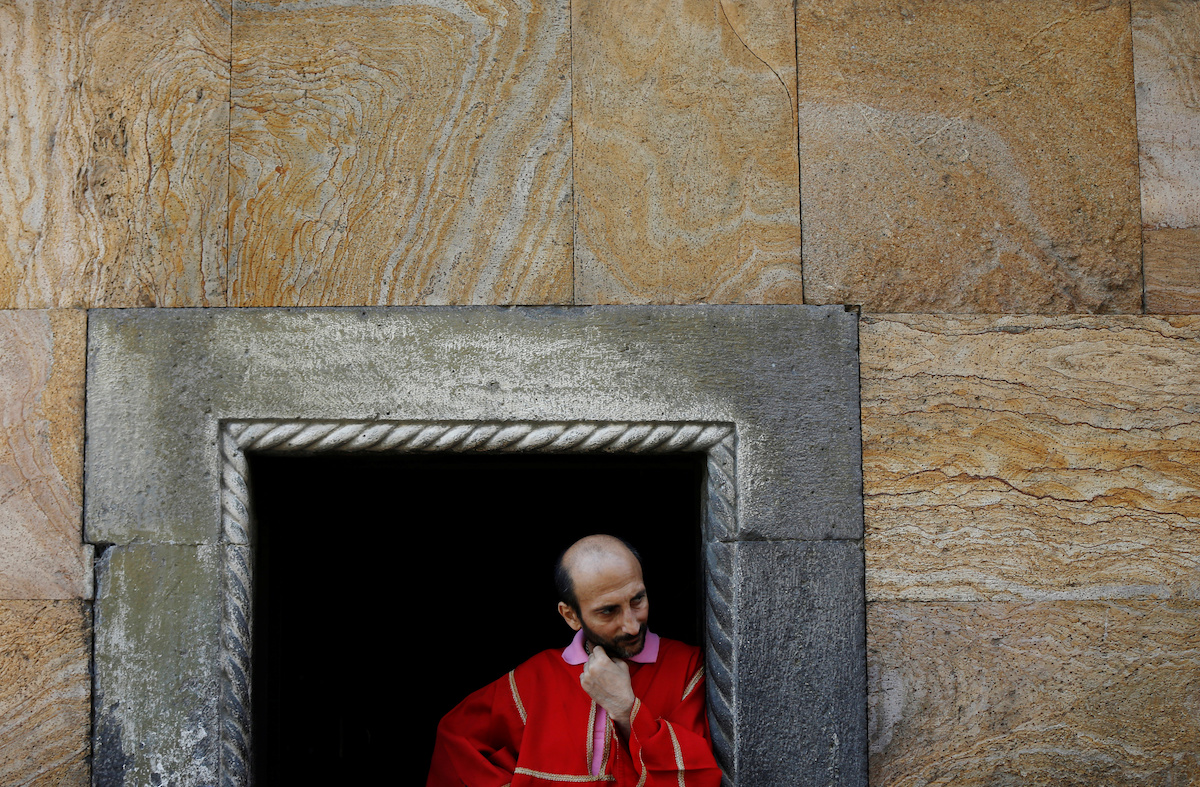Why Georgian Patriarchate still doesn't recognize Ukranian Church autocephaly
Georgian Church and the ongoing war in Ukraine
Ukraine addressed the churches of the world with an appeal to recognize its autocephaly. What is the Georgian Patriarchy going to do and what is the Georgian Church attitude towards the ongoing war in Ukraine?
Since the beginning of the war, the Georgian Patriarchate has made several statements regarding the war in Ukraine.
The first official statement was made on the day the war began – “War is going on in some countries and we are very sorry about it”, “We are praying, but we are trying not to take part in it”, “We are watching the tense situation in Ukraine with pain in our hearts”, the message says.
On the same day, Patriarch of Georgia Ilia II wrote on Twitter that if the fighting in Ukraine does not stop soon, it will turn into a global tragedy.
Neither in the first official statement, nor in the text posted on Twitter, the word “Russia” was mentioned.
- “I prayed to God to die quickly” – a story of a girl from Mariupol
- Bodies were removed from the rubble on the 40th day” – death and destruction that Russian army leaves behind
On March 16, on the 21st day of the war, the word Russia first appeared in a statement from the Patriarchate:
Unfortunately, in Ukraine, military operations carried out by Russia continue, claiming thousands of lives.
The April 5 statement, preceded by the publication of photos/videos of the Bucha massacre, showed more intensity and emotion:
“Despite the brutal ‘laws’ of war, the severity that can be seen in these footage is hard to imagine. Seeing this, it is impossible not to be shocked”.
In parallel with these statements, the Georgian Patriarchate is collecting humanitarian aid for Ukraine and calling on parishioners to pray for peace.
Russia’s messages to the Georgian Church
Theologian Beka Mindiashvili says the Patriarchate’s statements should be regarded in the context of its historical relations with Russia.
The context, according to him, is that for many years, the Georgian Patriarchate shared and pursued Russian policy and supported Russia’s position at critical moments.
For example, Georgia took the side of Russia in the confrontation with Constantinople and did not go to a very important forum in Crete – the General Assembly of the World Orthodox Church.
Also, the Georgian Patriarchate did not support the struggle of the Ukrainian Church for independence, which was part of its liberation from Russian influence. Georgia has not yet recognized the autocephaly of the Ukrainian Orthodox Church, which it received in 2019.
Theologian Basil Kobakhidze believes that the church’s rhetoric “fits into the government’s propaganda” and, like this propaganda, “feeds society with fear”.
“We, the Orthodox, are surrounded by enemies; Antichrist will come any day now; We are fighting the West, America, which is the Whore of Babylon and ruled by Jewish Freemasons”, Kobakhidze cites examples of the church propaganda.
According to him, the Jewish background of Volodymyr Zelensky came very opportunely to these anti-Semitic “messages” – during the sermon, the priests blame Zelensky for what happened:
“And here the circle closes – a Jew, a Freemason, a gay Zelensky, who is the first enemy of a Georgian Orthodox man”, the theologian explains.
The Russian Church preaches the same thing:
“Russian Patriarch Kirill said that Ukraine is being punished for debauchery. Because there are gay parades, right, literally, it was said so. And our clergy sings along with him. A good example of this is Bishop Spiridon, who says that Ukraine is being punished for having a Jewish and gay president”, says theologian Beka Mindiashvili.
- “Ukraine is repsonsible for the war it is losing” – who spreads pro-Russian propaganda in Georgia
- Op-ed: Who is speculating on the fear of war in Georgia and why?
According to Basil Kobakhidze, religious pro-Russian sentiment in Georgia did not start with the war in Ukraine. The “fifth column” has been operating in the Georgian Church for decades, knowing its “business” well and methodically preaching the Russian narrative:
“When the war began, Ilia II did not need to gather bishops and explain to them what things to distribute. All this fits well with the style of their sermons.
Kobakhidze says propaganda inside church walls is especially dangerous:
“On the example of Russia, we see how propaganda works. And when it is done on behalf by clergy, it has even greater power”.
Autocephaly of the Ukrainian Church – isn’t it time to recognize it?
On January 5, 2019, Patriarch Bartholomew of Constantinople signed the Tomos, a document confirming the canonical status of the new Ukrainian Orthodox Church. This ended the centuries-old struggle of Ukraine (excluding the Soviet period) for autocephaly.
Ukraine became the 15th independent Orthodox Church. More than three years have passed since then, but the Georgian Church has not yet recognized its independence.
The reason for this, they say in the Georgian Patriarchate, is that it is better to take your time and carefully read and study the Tomos itself [Tomos is a one-page church document, the Declaration of Independence of the Church. clearly defines the boundaries of the new church – JAMnews].
“Now is the time to finish reading the tomos”, Beka Mindiashvili says.
He says that the recognition of the autocephaly of the Ukrainian Church would show significant support for Ukraine, which is now at war. However, he has no such expectations.
Consequently, the Georgian Church is not expected in Georgia to sever ties with the Russian Orthodox Church in order to support Ukraine.
On March 29, the Verkhovna Rada of Ukraine registered a bill to ban the Moscow Patriarchate church in the country. The Church of Ukraine also calls on the Patriarch of Constantinople to resolve the issue of the Moscow-subordinate church in Ukraine (which operates in parallel with the autocephalous church).
In this regard, we asked theologians whether the Georgian Orthodox Church should consider ending official relations with the Russian Orthodox Church.
Basil Kobakhidze says Georgia should have done this during the August 2008 war:
“Then the Eucharistic union with the Russian Orthodox Church had to be broken. Which, of course, they have not done and will not do. Since the church does not even directly call Russia an aggressor, it limits itself to common toasts”.
Beka Mindiashvili does not expect this either, because, according to him, “the Georgian Patriarchate has been the main generator of Russian sentiment in Georgia for many years”.
Will the Georgian church reconsider its position?
In order to understand what the patriarchate is saying about the war in Ukraine, “one must carefully reread the statements of the patriarchate”, Archbishop Andria Jagmaidze, head of public relations for the patriarchate of the Georgian Orthodox Church, told JAMnews.
In the program on the television of the Patriarchate “At the Crossroads” on April 14, 2022, hosted by Andria Jagmaidze, he literally repeated the rhetoric of the Georgian authorities about the war in Ukraine. He emphasized that the church sent humanitarian aid to Ukraine, and also expressed its sympathy in statements:
“We do not need to spell out what happens during the war. Recently, in 2008, we saw with our own eyes what rash steps can lead to”.
“Most churches do not recognize the autocephaly of Ukraine, and Georgia should not be in a hurry either”, is the main message of this show.
One of the guests of the program, theologian Levan Abashidze, says that if the Georgian Patriarchate recognizes the autocephaly of the Ukrainian Church, it will oppose the Russian Church:
“The Russian Orthodox Church is not only Russia. You immediately break off relations with Russian churches that exist in Europe, America, where many Georgian emigrants go, and so on. There are also 800,000 of them in Russia [Dzhagmaidze said]. This is a big problem, if this connection breaks, the priest will say: “Either you take communion here, or you go to Tbilisi and do it there”.
Dzhagmaidze says that the question of whether Georgia should now recognize the autocephaly of the Ukrainian Church is incorrect.
“We are no exception, four out of 15 churches have recognized it.
When the Georgian Church proclaimed autocephaly, we had to wait a long time until Constantinople recognized our church. We have been waiting for this for 73 years”, Jagmaidze added.





















